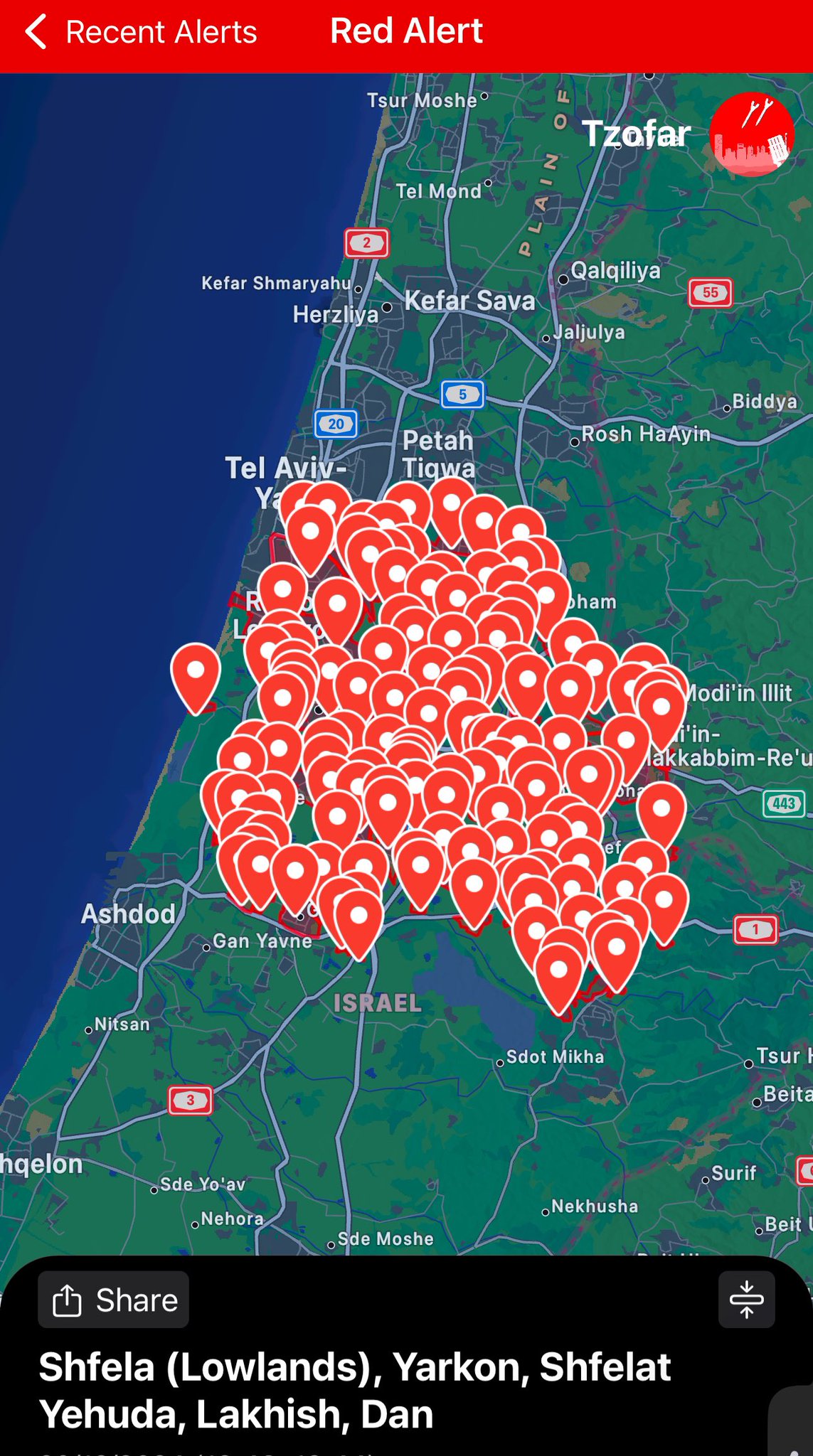0 ความคิดเห็น
0 การแบ่งปัน
77 มุมมอง
0 รีวิว

รายการ
ค้นพบผู้คนใหม่ๆ สร้างการเชื่อมต่อใหม่ๆ และรู้จักเพื่อนใหม่
- กรุณาเข้าสู่ระบบเพื่อกดถูกใจ แชร์ และแสดงความคิดเห็น!
- 0 ความคิดเห็น 0 การแบ่งปัน 68 มุมมอง 0 รีวิว
- 0 ความคิดเห็น 0 การแบ่งปัน 75 มุมมอง 0 รีวิว
-
- รศ.สมชาย ปรีชาศิลปกุลตั้งข้อสังเกต
ช่วงหลังฟรีทีวีทำละครน้อยลง
แต่ "ทำข่าว" ให้เป็น "ละคร" มากขึ้น?
“ตอนนี้ สิ่งที่เกิดขึ้นคือเราไม่ได้ดู ‘ละครหลังข่าว’
เราดู ‘ละครในข่าว”
https://www.matichonweekly.com/column/article_816963รศ.สมชาย ปรีชาศิลปกุลตั้งข้อสังเกต ช่วงหลังฟรีทีวีทำละครน้อยลง แต่ "ทำข่าว" ให้เป็น "ละคร" มากขึ้น? “ตอนนี้ สิ่งที่เกิดขึ้นคือเราไม่ได้ดู ‘ละครหลังข่าว’ เราดู ‘ละครในข่าว” https://www.matichonweekly.com/column/article_8169630 ความคิดเห็น 0 การแบ่งปัน 149 มุมมอง 0 รีวิว1
- จักรพันธ์ อธิวัชร์เมธากุล เพิ่ม 9 รูป ในอัลบั้ม: บูรณะปิดทอง เจดีย์วัดมหาวัน จ.ลำพูน1 ความคิดเห็น 0 การแบ่งปัน 67 มุมมอง 0 รีวิว1

- 0 ความคิดเห็น 0 การแบ่งปัน 84 มุมมอง 0 รีวิว
- “Few” vs. “Couple” vs. “Several”: How Much Do They Really Mean?
Every day, without thinking about it, we all refer to quantities without specifying a number. Most commonly, we do this by using terms like a few, a couple, and several. A lot of people have strong opinions about what each of these terms means—and what it doesn’t.
In this article, we’ll discuss the differences, the overlap, and dig into these questions and a few (or several) more, including:
- How many is few?
- What’s the difference between few and a few?
- How many is a couple?
- What’s the difference between a couple and a few?
- How many is several?
Quick summary
A couple most strictly means two, but it’s often used casually to mean much the same thing as a few, which commonly means around two, three, or four—it can be relative to the situation and the size of the numbers under discussion. For example, you might say only a few people came when it was 12 but 50 were invited. Several most commonly means more than two, but fewer than many. Depending on the context, the meanings of couple, few, and several, can overlap.
How many is a few?
A few is generally considered to mean between two and several. Some people use a few to mean around three, but this is not a universal interpretation. Its meaning is highly relative to the context—it often depends on what’s being discussed, especially the scale and expectations.
When you say you ate a few of something, such as potato chips or candies, you might mean you ate three or four, but you could also mean you had, say, 10 or a small handful—especially if they’re small or you’d normally eat more. There are many other situations in which the same number would be considered many or a lot, especially if it’s considered more than normal.
few vs. a few
Even though they are both used to refer to a small but nonspecific quantity—and in some situations may even indicate the same quantity—the terms a few and few are subtly different.
Sometimes, a few is used to point out that there are some, as opposed to none, as in Dave said we didn’t get any applications, but there are a few. You could also say Dave said we didn’t get any applications, but there are some.
In contrast, few, as in Few are suited for this kind of work or There are very few positions available, emphasizes the limitedness of the quantity. Few emphasizes the low quantity and lack of items.
Here are three sentences (and their interpretations) that illustrate the potential difference in meaning between few, a few, and only a few:
- A few people attended. (This simply indicates the approximate number of people who attended).
- Few people attended. (This emphasizes that attendance was low.)
- Only a few people attended. (This emphasizes that attendance was low—and perhaps lower than expected or desired.)
How many is a couple?
In its strictest sense, the phrase a couple means two. It is commonly followed by of, as in I have a couple of errands to run or They made a couple of mistakes. Sometimes, it’s used without of, which is considered even more informal, as in a couple miles or a couple books. A couple more is also used frequently and informally: a couple more cookies and a couple more minutes.
It’s very common for a couple to be used casually to mean around two, or three, or … in other words, it’s often used interchangeably with a few.
a couple vs. a few
In casual use, a couple and a few are often used interchangeably to refer to a low but nonspecific number of things. A couple is often more strictly interpreted as two or at least around two—maybe three or four, depending on the context.
It’s possible that some people say a couple when they mean two or even three but then switch to a few when they mean three or four or more. But there’s no “correct” definition—everyone’s use differs without the meaning being misinterpreted too much.
Of the two, a few is the more flexible. Most people would probably agree that even though a few and a couple are commonly used interchangeably, a few more commonly refers to higher quantities than a couple does. A couple is typically a small number, while a few can range higher depending on the context, scale, and expectations of what’s being discussed.
How many is several?
When it comes to several, well, there are going to be several answers. Generally speaking, several is used to refer to quantities above two or so but not so much that it’s a lot or many. Perhaps the most common interpretation or intended sense of several is around three to five, but this can vary greatly depending on the context. If the numbers under discussion are particularly large, then the exact meaning of several can expand. For example, several people could mean eight or nine or even more in a crowd of hundreds, but four or five in a crowd of 10.
several vs. few
Due to their malleable, nonspecific nature, several and a few can certainly overlap. Obviously, a few is on the low end, with several higher, so they overlap somewhere in the middle. For example, four cats could be several or a few, depending on the situation, expectations, or other factors.
Here are some examples of how several vs. few are used interchangeably.
- My sister called several minutes ago.
- My sister called a few minutes ago.
Examples of few, couple, and several used in a sentence
Here are some examples of how a few, few, couple, and several are used in real-life contexts.
- I like a few olives on my salad.
- Few people have seen the new house yet, but we did invite a few close friends over when we moved in.
- I ate a couple of cookies from the jar.
- I need a few good ideas—I’d like everyone to submit a couple of suggestions.
- We need to interview a few more candidates if we hope to have several on the shortlist.
Copyright 2024, AAKKHRA, All Rights Reserved.“Few” vs. “Couple” vs. “Several”: How Much Do They Really Mean? Every day, without thinking about it, we all refer to quantities without specifying a number. Most commonly, we do this by using terms like a few, a couple, and several. A lot of people have strong opinions about what each of these terms means—and what it doesn’t. In this article, we’ll discuss the differences, the overlap, and dig into these questions and a few (or several) more, including: - How many is few? - What’s the difference between few and a few? - How many is a couple? - What’s the difference between a couple and a few? - How many is several? Quick summary A couple most strictly means two, but it’s often used casually to mean much the same thing as a few, which commonly means around two, three, or four—it can be relative to the situation and the size of the numbers under discussion. For example, you might say only a few people came when it was 12 but 50 were invited. Several most commonly means more than two, but fewer than many. Depending on the context, the meanings of couple, few, and several, can overlap. How many is a few? A few is generally considered to mean between two and several. Some people use a few to mean around three, but this is not a universal interpretation. Its meaning is highly relative to the context—it often depends on what’s being discussed, especially the scale and expectations. When you say you ate a few of something, such as potato chips or candies, you might mean you ate three or four, but you could also mean you had, say, 10 or a small handful—especially if they’re small or you’d normally eat more. There are many other situations in which the same number would be considered many or a lot, especially if it’s considered more than normal. few vs. a few Even though they are both used to refer to a small but nonspecific quantity—and in some situations may even indicate the same quantity—the terms a few and few are subtly different. Sometimes, a few is used to point out that there are some, as opposed to none, as in Dave said we didn’t get any applications, but there are a few. You could also say Dave said we didn’t get any applications, but there are some. In contrast, few, as in Few are suited for this kind of work or There are very few positions available, emphasizes the limitedness of the quantity. Few emphasizes the low quantity and lack of items. Here are three sentences (and their interpretations) that illustrate the potential difference in meaning between few, a few, and only a few: - A few people attended. (This simply indicates the approximate number of people who attended). - Few people attended. (This emphasizes that attendance was low.) - Only a few people attended. (This emphasizes that attendance was low—and perhaps lower than expected or desired.) How many is a couple? In its strictest sense, the phrase a couple means two. It is commonly followed by of, as in I have a couple of errands to run or They made a couple of mistakes. Sometimes, it’s used without of, which is considered even more informal, as in a couple miles or a couple books. A couple more is also used frequently and informally: a couple more cookies and a couple more minutes. It’s very common for a couple to be used casually to mean around two, or three, or … in other words, it’s often used interchangeably with a few. a couple vs. a few In casual use, a couple and a few are often used interchangeably to refer to a low but nonspecific number of things. A couple is often more strictly interpreted as two or at least around two—maybe three or four, depending on the context. It’s possible that some people say a couple when they mean two or even three but then switch to a few when they mean three or four or more. But there’s no “correct” definition—everyone’s use differs without the meaning being misinterpreted too much. Of the two, a few is the more flexible. Most people would probably agree that even though a few and a couple are commonly used interchangeably, a few more commonly refers to higher quantities than a couple does. A couple is typically a small number, while a few can range higher depending on the context, scale, and expectations of what’s being discussed. How many is several? When it comes to several, well, there are going to be several answers. Generally speaking, several is used to refer to quantities above two or so but not so much that it’s a lot or many. Perhaps the most common interpretation or intended sense of several is around three to five, but this can vary greatly depending on the context. If the numbers under discussion are particularly large, then the exact meaning of several can expand. For example, several people could mean eight or nine or even more in a crowd of hundreds, but four or five in a crowd of 10. several vs. few Due to their malleable, nonspecific nature, several and a few can certainly overlap. Obviously, a few is on the low end, with several higher, so they overlap somewhere in the middle. For example, four cats could be several or a few, depending on the situation, expectations, or other factors. Here are some examples of how several vs. few are used interchangeably. - My sister called several minutes ago. - My sister called a few minutes ago. Examples of few, couple, and several used in a sentence Here are some examples of how a few, few, couple, and several are used in real-life contexts. - I like a few olives on my salad. - Few people have seen the new house yet, but we did invite a few close friends over when we moved in. - I ate a couple of cookies from the jar. - I need a few good ideas—I’d like everyone to submit a couple of suggestions. - We need to interview a few more candidates if we hope to have several on the shortlist. Copyright 2024, AAKKHRA, All Rights Reserved.0 ความคิดเห็น 0 การแบ่งปัน 777 มุมมอง 0 รีวิว - “A Lot” vs. “Alot” vs. “Allot”: How Much Difference Is There Between Them?
We use a lot … a lot. But ask someone to define a lot and they’ll probably start by saying “A lot means … a lot!” That’s because it’s so commonly used that it can be hard to think of how to explain it.
A lot can seem like it should be a single word—and maybe one day the spelling alot will appear in this dictionary. But right now, the two-word spelling a lot is the one that’s recognized as standard. As for allot, it’s a different word altogether (even though it’s pronounced the same).
Allot some time to learn why a lot is spelled the way it is, and we promise you’ll learn a lot more along the way (including how to know whether a lot is being used as a noun or an adverb).
Quick summary
A lot, which is often misspelled as alot, means “a large number or quantity” or “very much,” and it can be used as a noun or an adverb. Allot is a verb that means “to portion out” or “to set aside a share or portion of something, such as money or time, for a specific purpose.”
What does a lot mean?
As a noun, a lot means “a large number, quantity, or amount,” as in That’s a lot of cheese! or I only have a few hobbies, but my husband has a lot.
As an adverb, a lot means “very much” or “a great deal,” as in I love you a lot, or “often,” as in I’ve been practicing a lot. It’s used as an adverb in the phrase Thanks a lot (which is the same as saying Thanks very much).
Sometimes, it can be hard to tell whether a lot is being used as a noun or an adverb (making it hard to know what it’s supposed to mean). One way to tell is to remember that the noun use of a lot can be (and often is) paired with the word of and another noun. For example, in the sentence I had to study a lot for the test, the term a lot could refer to a lot of material, in which case it’s being used as a noun. However, if a lot is supposed to mean “often,” it’s being used as an adverb.
A lot is probably misspelled as alot so commonly because we tend to think of it as functioning as a single word, but it’s really a combination of two: a (the extremely common indefinite article we use all the time, as in I have a cat and a dog) and lot (which, by itself, can mean “large number or quantity” or “great deal”).
The word lots can mean the same thing as (and can be used interchangeably with) a lot, both as a noun, as in Lots of people were at the party, and as an adverb, as in I love you lots or I’ve been practicing lots. A lot is informal but very common, and lots is even more informal.
A lot is very similar to other constructions like a ton (which can be used as a synonym of a lot) and a bit (which can be thought of as the opposite of a lot). Like a lot, both terms can also function as both nouns and adverbs: a bit of cheese (noun); back up a bit so you can be in the picture (adverb).
What does allot mean?
Allot is a verb that means “to divide out something into shares or portions,” as in His estate was allotted among his heirs.
It can also mean “to dedicate or assign something, especially money or time, for a specific purpose,” as in We’re going to allot half of our budget for supplies or Please allot some time to review your work.
The noun form is allotment, which can mean the same thing as portion.
How to use a lot vs. alot vs. allot
When to use a lot: when you’re talking about a large quantity of something or want to indicate that something happens or is done often or all the time. A lot is only ever used as a noun or an adverb.
When to use alot: don’t. It’s a misspelling of a lot.
When to use allot: when you’re talking about dividing something into portions or devoting a portion of time, money, or something else to a specific purpose. Allot is only ever used as a verb.
Examples of a lot and allot used in a sentence
Check out these examples to see how a lot and allot are commonly used in a sentence (sometimes even in the same one).
- I like a lot of toppings on my pizza.
- I have a lot, and I believe it’s my responsibility to help people who have very little.
- I’ve been thinking a lot about this problem, and I think I have a solution.
- The remaining shares have been allotted between you and your sister.
- The residents at the meeting requested that we allot more money to the park project.
- You’ll need to allot a lot of time to count the ballots—there are almost 500.
Copyright 2024, AAKKHRA, All Rights Reserved.“A Lot” vs. “Alot” vs. “Allot”: How Much Difference Is There Between Them? We use a lot … a lot. But ask someone to define a lot and they’ll probably start by saying “A lot means … a lot!” That’s because it’s so commonly used that it can be hard to think of how to explain it. A lot can seem like it should be a single word—and maybe one day the spelling alot will appear in this dictionary. But right now, the two-word spelling a lot is the one that’s recognized as standard. As for allot, it’s a different word altogether (even though it’s pronounced the same). Allot some time to learn why a lot is spelled the way it is, and we promise you’ll learn a lot more along the way (including how to know whether a lot is being used as a noun or an adverb). Quick summary A lot, which is often misspelled as alot, means “a large number or quantity” or “very much,” and it can be used as a noun or an adverb. Allot is a verb that means “to portion out” or “to set aside a share or portion of something, such as money or time, for a specific purpose.” What does a lot mean? As a noun, a lot means “a large number, quantity, or amount,” as in That’s a lot of cheese! or I only have a few hobbies, but my husband has a lot. As an adverb, a lot means “very much” or “a great deal,” as in I love you a lot, or “often,” as in I’ve been practicing a lot. It’s used as an adverb in the phrase Thanks a lot (which is the same as saying Thanks very much). Sometimes, it can be hard to tell whether a lot is being used as a noun or an adverb (making it hard to know what it’s supposed to mean). One way to tell is to remember that the noun use of a lot can be (and often is) paired with the word of and another noun. For example, in the sentence I had to study a lot for the test, the term a lot could refer to a lot of material, in which case it’s being used as a noun. However, if a lot is supposed to mean “often,” it’s being used as an adverb. A lot is probably misspelled as alot so commonly because we tend to think of it as functioning as a single word, but it’s really a combination of two: a (the extremely common indefinite article we use all the time, as in I have a cat and a dog) and lot (which, by itself, can mean “large number or quantity” or “great deal”). The word lots can mean the same thing as (and can be used interchangeably with) a lot, both as a noun, as in Lots of people were at the party, and as an adverb, as in I love you lots or I’ve been practicing lots. A lot is informal but very common, and lots is even more informal. A lot is very similar to other constructions like a ton (which can be used as a synonym of a lot) and a bit (which can be thought of as the opposite of a lot). Like a lot, both terms can also function as both nouns and adverbs: a bit of cheese (noun); back up a bit so you can be in the picture (adverb). What does allot mean? Allot is a verb that means “to divide out something into shares or portions,” as in His estate was allotted among his heirs. It can also mean “to dedicate or assign something, especially money or time, for a specific purpose,” as in We’re going to allot half of our budget for supplies or Please allot some time to review your work. The noun form is allotment, which can mean the same thing as portion. How to use a lot vs. alot vs. allot When to use a lot: when you’re talking about a large quantity of something or want to indicate that something happens or is done often or all the time. A lot is only ever used as a noun or an adverb. When to use alot: don’t. It’s a misspelling of a lot. When to use allot: when you’re talking about dividing something into portions or devoting a portion of time, money, or something else to a specific purpose. Allot is only ever used as a verb. Examples of a lot and allot used in a sentence Check out these examples to see how a lot and allot are commonly used in a sentence (sometimes even in the same one). - I like a lot of toppings on my pizza. - I have a lot, and I believe it’s my responsibility to help people who have very little. - I’ve been thinking a lot about this problem, and I think I have a solution. - The remaining shares have been allotted between you and your sister. - The residents at the meeting requested that we allot more money to the park project. - You’ll need to allot a lot of time to count the ballots—there are almost 500. Copyright 2024, AAKKHRA, All Rights Reserved.0 ความคิดเห็น 0 การแบ่งปัน 1018 มุมมอง 0 รีวิว - Ready To Make Small Talk? Here Are 10 Different Kinds To Try!
If the term small talk sends a pang of dread shooting through your chest, you aren’t alone. That very word may have you picturing yourself stranded with a group of strangers, desperately trying to think of questions to ask while everyone stares at you awkwardly. Luckily, small talk doesn’t have to be that way. There are plenty of ways to improve your small talk skills. It also helps to remember that different situations call for different kinds of small talk. Small talk can be used to connect with old friends, make new ones, banter with potential dates, and network with clients and connections. Here’s a guide to the many different kinds of small talk and some fun facts about each type. Think of this as a cheat sheet you can carry with you into your next great conversation!
chitchat
If you’ve ever made “light conversation, casual talk, or gossip” with someone, then you’ve engaged in chitchat. It’s a form of small talk that might occur between acquaintances and usually doesn’t delve into heavy or serious topics. People have been chitchatting for a lot longer than you might think. The word is a duplicate form of chat that’s been in use in English since the early 1700s.
table talk
Table talk is called that because, well, it happens most often at a table. Defined as “informal conversation at meals,” table talk is what you might expect at a dinner party or an after-work happy hour meetup. Sometimes it can take a turn for the serious (see: awkward family dinners during Thanksgiving), but topics are usually lighthearted and meant to keep guests engaged. The phrase table talk has been in use since the mid-1500s.
exchanging pleasantries
If you don’t know someone well, the first step to talking with them is exchanging pleasantries. A pleasantry is “a courteous social remark used to initiate or facilitate a conversation,” such as complimenting the decor at a new acquaintance’s house or commenting on the weather as you and a new neighbor both check your mailboxes. The word pleasantry has been in use in English since the 1600s.
shooting the breeze
To shoot the breeze means “to talk idly, chat.” The word breeze sometimes means “an easy task; something done or carried on without difficulty.” In this sense, you can think of shooting the breeze as engaging in easy conversation, like the ones had when lounging around at a party or other relaxed gathering. This phrase may have originated as a variant of shooting the bull, in which bull means “empty talk or lies.” Shooting the breeze has been in use in English since at least 1919.
causerie
Causerie sounds like it might refer to something formal or serious, but it actually means “an informal talk or chat.” You might engage in a causerie while gathered around the buffet table or mingling with other attendees at a conference. First recorded in the 1820s, causerie comes from the French causer, meaning “to chat.”
chinwag
If you wish to “chat idly or gossip” with an acquaintance, you might pop by for a chinwag. Chinwag is a 19th-century word that is likely borrowed from British English, though the exact origins of the phrase are unknown. Chinwag likely refers to the physical act of talking, as in the way a chin wags, or “moves from side to side or up and down” when one speaks. Chinwagging is something you can do with a friend or with people you don’t know well.
schmoozing
Schmoozing is the kind of small talk that often happens when people are trying to make connections. It means “idle conversation; chatter,” but it’s often used to describe situations in which that idle chatter is intended to help you get “in” with a certain person or group. You might schmooze with the boss at the holiday party or schmooze with the other PTA parents you’re trying to get to know. The word schmooze is an Americanism, but it has roots in Yiddish. The verb schmues, from the Hebrew shəmūʿōth, means “reports, gossip.”
persiflage
The kind of frivolous, easy small talk you might make at a party can also be called persiflage. This word, meaning “light, bantering talk or writing,” comes from the French persifler, meaning “to banter” or “to tease.” Persiflage, then, describes small talk that is fun. It might include jokes, witticisms, and clever repartee. Who knows? You might even end up with a new friend. The word persiflage was first recorded in English in the 1750s.
banter
Banter is “an exchange of light, playful, teasing remarks; good-natured raillery.” It’s what can happen when small talk is going well. Often, you might engage in banter with a new acquaintance with whom you get along particularly well. Banter might also be the preferred type of small talk on a first date or when you’re really connecting with someone new on a dating app. The origin of the word banter is unknown, but English speakers have been using it since at least the 1660s.
gossip
Gossip technically counts as a form of small talk, but proceed with caution: depending on the subject of the gossip, this one could land you in hot water. Gossip is defined as “idle talk or rumor, especially about the personal or private affairs of others,” and the concept has been around for a very long time. First recorded before 1050, gossip can be traced to the Old English godsibb, a term that initially meant “godparent,” but later came to be applied to familiar friends, especially a woman’s female friends. This is likely due to the outdated belief that women were more fond of “light talk” or gossip.
Copyright 2024, AAKKHRA, All Rights Reserved.Ready To Make Small Talk? Here Are 10 Different Kinds To Try! If the term small talk sends a pang of dread shooting through your chest, you aren’t alone. That very word may have you picturing yourself stranded with a group of strangers, desperately trying to think of questions to ask while everyone stares at you awkwardly. Luckily, small talk doesn’t have to be that way. There are plenty of ways to improve your small talk skills. It also helps to remember that different situations call for different kinds of small talk. Small talk can be used to connect with old friends, make new ones, banter with potential dates, and network with clients and connections. Here’s a guide to the many different kinds of small talk and some fun facts about each type. Think of this as a cheat sheet you can carry with you into your next great conversation! chitchat If you’ve ever made “light conversation, casual talk, or gossip” with someone, then you’ve engaged in chitchat. It’s a form of small talk that might occur between acquaintances and usually doesn’t delve into heavy or serious topics. People have been chitchatting for a lot longer than you might think. The word is a duplicate form of chat that’s been in use in English since the early 1700s. table talk Table talk is called that because, well, it happens most often at a table. Defined as “informal conversation at meals,” table talk is what you might expect at a dinner party or an after-work happy hour meetup. Sometimes it can take a turn for the serious (see: awkward family dinners during Thanksgiving), but topics are usually lighthearted and meant to keep guests engaged. The phrase table talk has been in use since the mid-1500s. exchanging pleasantries If you don’t know someone well, the first step to talking with them is exchanging pleasantries. A pleasantry is “a courteous social remark used to initiate or facilitate a conversation,” such as complimenting the decor at a new acquaintance’s house or commenting on the weather as you and a new neighbor both check your mailboxes. The word pleasantry has been in use in English since the 1600s. shooting the breeze To shoot the breeze means “to talk idly, chat.” The word breeze sometimes means “an easy task; something done or carried on without difficulty.” In this sense, you can think of shooting the breeze as engaging in easy conversation, like the ones had when lounging around at a party or other relaxed gathering. This phrase may have originated as a variant of shooting the bull, in which bull means “empty talk or lies.” Shooting the breeze has been in use in English since at least 1919. causerie Causerie sounds like it might refer to something formal or serious, but it actually means “an informal talk or chat.” You might engage in a causerie while gathered around the buffet table or mingling with other attendees at a conference. First recorded in the 1820s, causerie comes from the French causer, meaning “to chat.” chinwag If you wish to “chat idly or gossip” with an acquaintance, you might pop by for a chinwag. Chinwag is a 19th-century word that is likely borrowed from British English, though the exact origins of the phrase are unknown. Chinwag likely refers to the physical act of talking, as in the way a chin wags, or “moves from side to side or up and down” when one speaks. Chinwagging is something you can do with a friend or with people you don’t know well. schmoozing Schmoozing is the kind of small talk that often happens when people are trying to make connections. It means “idle conversation; chatter,” but it’s often used to describe situations in which that idle chatter is intended to help you get “in” with a certain person or group. You might schmooze with the boss at the holiday party or schmooze with the other PTA parents you’re trying to get to know. The word schmooze is an Americanism, but it has roots in Yiddish. The verb schmues, from the Hebrew shəmūʿōth, means “reports, gossip.” persiflage The kind of frivolous, easy small talk you might make at a party can also be called persiflage. This word, meaning “light, bantering talk or writing,” comes from the French persifler, meaning “to banter” or “to tease.” Persiflage, then, describes small talk that is fun. It might include jokes, witticisms, and clever repartee. Who knows? You might even end up with a new friend. The word persiflage was first recorded in English in the 1750s. banter Banter is “an exchange of light, playful, teasing remarks; good-natured raillery.” It’s what can happen when small talk is going well. Often, you might engage in banter with a new acquaintance with whom you get along particularly well. Banter might also be the preferred type of small talk on a first date or when you’re really connecting with someone new on a dating app. The origin of the word banter is unknown, but English speakers have been using it since at least the 1660s. gossip Gossip technically counts as a form of small talk, but proceed with caution: depending on the subject of the gossip, this one could land you in hot water. Gossip is defined as “idle talk or rumor, especially about the personal or private affairs of others,” and the concept has been around for a very long time. First recorded before 1050, gossip can be traced to the Old English godsibb, a term that initially meant “godparent,” but later came to be applied to familiar friends, especially a woman’s female friends. This is likely due to the outdated belief that women were more fond of “light talk” or gossip. Copyright 2024, AAKKHRA, All Rights Reserved.0 ความคิดเห็น 0 การแบ่งปัน 1237 มุมมอง 0 รีวิว - 0 ความคิดเห็น 0 การแบ่งปัน 60 มุมมอง 0 รีวิว
- 1/
ขีปนาวุธของกลุ่มฮูตีเยเมนโจมตีเทลอาวีฟ ไอรอนโดมและ THAAD พยายามอย่างเต็มที่แต่ทำไม่ได้ ขีปนาวุธความเร็วเหนือเสียงของเยเมนเร็วกว่ามาก1/ ขีปนาวุธของกลุ่มฮูตีเยเมนโจมตีเทลอาวีฟ ไอรอนโดมและ THAAD พยายามอย่างเต็มที่แต่ทำไม่ได้ ขีปนาวุธความเร็วเหนือเสียงของเยเมนเร็วกว่ามาก0 ความคิดเห็น 0 การแบ่งปัน 153 มุมมอง 0 รีวิว - World Military and Political (การทหารและการเมืองโลก) เพิ่มวิดีโอแล้ว ข่าวและการเมือง2/
ขีปนาวุธของกลุ่มฮูตีเยเมนโจมตีเทลอาวีฟ ไอรอนโดมและ THAAD พยายามอย่างเต็มที่แต่ทำไม่ได้ ขีปนาวุธความเร็วเหนือเสียงของเยเมนเร็วกว่ามาก2/ ขีปนาวุธของกลุ่มฮูตีเยเมนโจมตีเทลอาวีฟ ไอรอนโดมและ THAAD พยายามอย่างเต็มที่แต่ทำไม่ได้ ขีปนาวุธความเร็วเหนือเสียงของเยเมนเร็วกว่ามาก0 ความคิดเห็น 0 การแบ่งปัน 309 มุมมอง 9 0 รีวิว - World Military and Political (การทหารและการเมืองโลก) เพิ่มวิดีโอแล้ว ข่าวและการเมือง3/
ขีปนาวุธของกลุ่มฮูตีเยเมนโจมตีเทลอาวีฟ ไอรอนโดมและ THAAD พยายามอย่างเต็มที่แต่ทำไม่ได้ ขีปนาวุธความเร็วเหนือเสียงของเยเมนเร็วกว่ามาก3/ ขีปนาวุธของกลุ่มฮูตีเยเมนโจมตีเทลอาวีฟ ไอรอนโดมและ THAAD พยายามอย่างเต็มที่แต่ทำไม่ได้ ขีปนาวุธความเร็วเหนือเสียงของเยเมนเร็วกว่ามาก0 ความคิดเห็น 0 การแบ่งปัน 321 มุมมอง 10 0 รีวิว1
- 0 ความคิดเห็น 0 การแบ่งปัน 84 มุมมอง 0 รีวิว
-
-
- 0 ความคิดเห็น 0 การแบ่งปัน 69 มุมมอง 0 รีวิว
- News1 Exclusive : เปิดใจ คุณหญิงหมอพรทิพย์ คดีแตงโมตั้งธงไว้ก่อน
: พญ.คุณหญิงพรทิพย์ โรจนสุนันท์ อดีตผู้อำนวยการสถาบันนิติวิทยาศาสตร์
: ปานเทพ พัวพงษ์พันธ์ คณบดีวิทยาลัยการแพทย์แผนตะวันออก ม.รังสิต0 ความคิดเห็น 0 การแบ่งปัน 71 มุมมอง 118 0 รีวิว - มีรายงานข้อมูลเพิ่มเติมเกี่ยวกับเหตุก่อการร้ายในเมืองแม็กเดเบิร์ก ประเทศเยอรมนี
เมื่อปี 2023 ชาวซาอุดีอาระเบียรายหนึ่งพยายามแจ้งเบาะแสเกี่ยวกับ พฤติกรรมของ Abdulmohsen ต่อตำรวจเบอร์ลินผ่านทางอีเมลและกล่องข้อความบนเว็บไซต์ นอกจากนี้นี้ยังพยายามส่งข้อความไปหา BAMF (Federal Office for Migration and Refugees) ซึ่งเป็นหน่วยงานที่ดูแลเกี่ยวกับการขอสถานะผู้ลี้ภัยและผู้อพยพของรัฐบาลเยอรมนี โดยเตือนว่า Taleb Abdulmohsen ซึ่งเป็นไซออนิสต์ที่ต่อต้านอิสลาม ข่มขู่จะสังหารชาวเยอรมัน 20 คนโดยไม่เลือกหน้า! แต่เจ้าหน้าที่เยอรมันกลับเพิกเฉย และมองว่า Abdulmohsen เป็นเพียง "นักเคลื่อนไหวทางการเมือง" เท่านั้น เหตุการณ์นี้จะป้องกันได้ หากเจ้าหน้าที่ปฏิบัติงานอย่างเคร่งครัด
วิดีโอ1- แสดงให้เห็นผู้ก่อเหตุขณะถูกจับกุม
จากการที่ผู้ก่อการร้ายขับรถยนต์พุ่งเข้าใส่ฝูงชนที่ตลาดคริสต์มาส ส่งผลให้มีผู้เสียชีวิตอย่างน้อย 11 ราย รวมถึงเด็ก 1 ราย และบาดเจ็บทะลุ 100 รายไปแล้ว
มีรายงานข้อมูลเพิ่มเติมเกี่ยวกับเหตุก่อการร้ายในเมืองแม็กเดเบิร์ก ประเทศเยอรมนี เมื่อปี 2023 ชาวซาอุดีอาระเบียรายหนึ่งพยายามแจ้งเบาะแสเกี่ยวกับ พฤติกรรมของ Abdulmohsen ต่อตำรวจเบอร์ลินผ่านทางอีเมลและกล่องข้อความบนเว็บไซต์ นอกจากนี้นี้ยังพยายามส่งข้อความไปหา BAMF (Federal Office for Migration and Refugees) ซึ่งเป็นหน่วยงานที่ดูแลเกี่ยวกับการขอสถานะผู้ลี้ภัยและผู้อพยพของรัฐบาลเยอรมนี โดยเตือนว่า Taleb Abdulmohsen ซึ่งเป็นไซออนิสต์ที่ต่อต้านอิสลาม ข่มขู่จะสังหารชาวเยอรมัน 20 คนโดยไม่เลือกหน้า! แต่เจ้าหน้าที่เยอรมันกลับเพิกเฉย และมองว่า Abdulmohsen เป็นเพียง "นักเคลื่อนไหวทางการเมือง" เท่านั้น เหตุการณ์นี้จะป้องกันได้ หากเจ้าหน้าที่ปฏิบัติงานอย่างเคร่งครัด วิดีโอ1- แสดงให้เห็นผู้ก่อเหตุขณะถูกจับกุม จากการที่ผู้ก่อการร้ายขับรถยนต์พุ่งเข้าใส่ฝูงชนที่ตลาดคริสต์มาส ส่งผลให้มีผู้เสียชีวิตอย่างน้อย 11 ราย รวมถึงเด็ก 1 ราย และบาดเจ็บทะลุ 100 รายไปแล้ว0 ความคิดเห็น 0 การแบ่งปัน 595 มุมมอง 0 รีวิว1
- World Military and Political (การทหารและการเมืองโลก) เพิ่มวิดีโอแล้ว ข่าวและการเมืองช่วงเวลาที่ขีปนาวุธลูกหนึ่งของรัสเซีย ขณะโจมตีสำนักงานใหญ่หน่วยข่าวกรองยูเครน (SBU) ใจกลางกรุงเคียฟ เมืองหลวงของยูเครน เมื่อวานนี้
มีรายงานผู้เสียชีวิตจำนวนมาก รวมถึงเจ้าหน้าที่นาโต้ด้วย!ช่วงเวลาที่ขีปนาวุธลูกหนึ่งของรัสเซีย ขณะโจมตีสำนักงานใหญ่หน่วยข่าวกรองยูเครน (SBU) ใจกลางกรุงเคียฟ เมืองหลวงของยูเครน เมื่อวานนี้ มีรายงานผู้เสียชีวิตจำนวนมาก รวมถึงเจ้าหน้าที่นาโต้ด้วย!0 ความคิดเห็น 0 การแบ่งปัน 280 มุมมอง 12 0 รีวิว1
- 0 ความคิดเห็น 0 การแบ่งปัน 76 มุมมอง 0 รีวิว
- 0 ความคิดเห็น 0 การแบ่งปัน 78 มุมมอง 0 รีวิว
- 0 ความคิดเห็น 0 การแบ่งปัน 76 มุมมอง 0 รีวิว
- 0 ความคิดเห็น 0 การแบ่งปัน 75 มุมมอง 0 รีวิว














